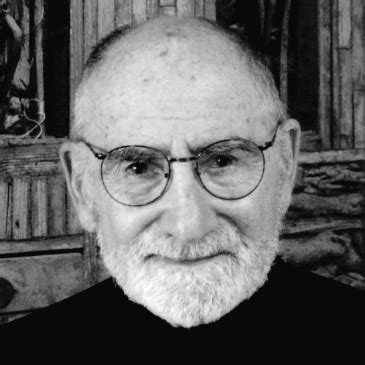A Quote by Albert Einstein
What I see in Nature is a grand design that we can understand only imperfectly, one with which a responsible person must look at with humility.
Quote Topics
Related Quotes
A Grand Design we couldn't see because we were part of it. A Grand Design we only got occasional, fleeting glimpses of. A Grand Design involving the entire course of history and all of time and space that, for some unfathomable reason, chose to work out its designs with cats and croquet mallets and penwipers, to say nothing of the dog. And a hideous piece of Victorian artwork. And us.
We look at the human body as a biochemical machine controlled by genes and therefore we see a mechanical aspect to life and then try to understand the nature of mechanics by looking at how the physical parts interact with each other. If you want to understand life you just look at it as a whole series of interactive chemical reactions. What we are leaving out is the invisible elements, the contributions of the invisible world, which are emphasized in the nature of quantum mechanics. Matter is energy and is a primary factor that must be considered because everything is ultimately energy.
A case can certainly be made that Christians bear a major responsibility for our ecological crisis. But the fault is not their biblical but their unbiblical view of nature. Christians have long failed to understand what the Bible really teaches concerning nature and our responsibility for it. For this there is no excuse. Repentance must be our first response. Our second response must then be to right the wrongs of our faulty understanding and act accordingly. We are all responsible to know what can be known of God's will for nature, and we are then responsible to act on that knowledge.
Humility, which Burke ranked high among the virtues, is the only effectual restraint upon this congenital vanity; yet our world has nearly forgotten the nature of humility. Submission to the dictates of humility formerly was made palatable to man by the doctrine of grace; that elaborate doctrine has been overwhelmed by modern presumption.
I begin with humility, I act with humility, I end with humility. Humility leads to clarity. Humility leads to an open mind and a forgiving heart. With an open mind and a forgiving heart, I see every person as superior to me in some way; with every person as my teacher, I grow in wisdom. As I grow in wisdom, humility becomes ever more my guide. I begin with humility, I act with humility, I end with humility.
What is necessary for 'the very existence of science,' and what the characteristics of nature are, are not to be determined by pompous preconditions, they are determined always by the material with which we work, by nature herself. We look, and we see what we find, and we cannot say ahead of time successfully what it is going to look like. ... It is necessary for the very existence of science that minds exist which do not allow that nature must satisfy some preconceived conditions.
The most common misperception is the word 'design'. People think of primarily pretty pictures or forms. They don't understand the depth to which design goes-not only in products, but in every aspect of our life. Whether it is the design of a program, a product or some form of communication, we are living in a world that's totally designed. Somebody made a decision about everything. And it was a design decision.
Humility is often only the putting on of a submissiveness by which men hope to bring other people to submit to them; it is a morecalculated sort of pride, which debases itself with a design of being exalted; and though this vice transform itself into a thousand several shapes, yet the disguise is never more effectual nor more capable of deceiving the world than when concealed under a form of humility.
We must learn to recognize nature's truths even though we don't understand them, for some of those truths may still be beyond the ability of the human mind to comprehend. What we need is a compound prescription of humility, imagination, devotion to the truth and, above all, confidence in the eternal wisdom of nature.


































